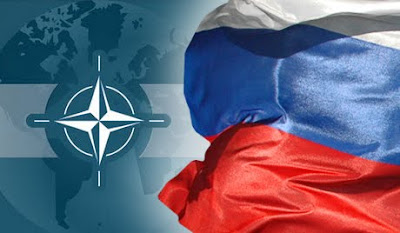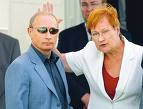NATO's door will be open for democratic Russia
Four former German top security policy figures published an Open Letter in Der Spiegel in which they proposed to start with Russia’s gradual accession to NATO. Emphasising the emergence of Asian centres of power in the multipolarising world, the authors of the letter consider uniting North America, Europe and Russia under a common security policy denominator an important counterbalance to it.
Multi-polar world is becoming a reality and thus also a phenomenon influencing international relations. Essentially the interest driven great power relations (Realpolitik) are emerging to the foreground again and equally the danger of confrontation of different power centres is increasing.
There is no doubt that in this context also the role of NATO has to be reviewed. For that purpose, in recent months there have been discussions about the new Strategic Concept of the Alliance. As far as I know, this does not foresee the rapid inclusion of Russia.
True, the Germans do not forget that one of the important links connecting the member states of NATO is the respect for shared democratic values and principles. They also do not believe the possible accession process of Russia could be carried out in a short time.
At the same time the letter still gives the impression that one of the main obstacles on Russia’s way to NATO is the opposition of some “Eastern European skeptics”. The authors say almost nothing about the authoritarian organisation of power, the sometimes even violent suppression of free thinking and the provocative behaviour towards neighbours in today’s Russia.
Naturally it would be wrong to rule out the possibility that one day Russia could be a full member of the defence alliance of Western states. Several Russian democrats have also said this to me when speaking about their aims. Many strategists in Moscow have understood already a long time ago that the greatest danger to Russia comes from the South and the East, and not the west.
At the same time the NATO eligibility of Russia would mean a paradigmatic change in Moscow’s behaviour. Is the present leadership of Russia ready to give up its neo-imperialist foreign policy, open the doors to freedom of speech and political competition? I seriously doubt it.
Unfortunately we see movement in the opposite direction. In spite of constantly emphasising the spirit of cooperation and partnership with the Western states, the ideologists of the Kremlin continue to regard NATO the main danger to the security of their state. The leaders of Russia have made no secret of their ambition to divide the Western world, to increase their sphere of influence at the expense of suppressing the sovereignty of other states and to guarantee the continuation of their authoritarian power.
If we take the proposal of the Germans literally, then the Western states should start to support more strongly the democratic reforms in Russia. It is not the skepticism of the Eastern European countries, but the behaviour of Russia that needs to be reconsidered. Unfortunately we do not see very much of it. Rather it is hoped that Russia would just give up its historically established zero-sum mentality and would listen to the wishes of the Western states. I am sorry but this is not so.
Besides stressing the democratic reforms and principles, Georgia ’s and Ukraine ’s gradual becoming closer to NATO is also a very important step in the integration of Russia




Kommentaarid
Mõned nädalapäevad tagasi rääkisite siin Eesti meedia võrdlemisi kehvast tööst, mis puudutab inglise keelse uudise pakkumist.
Muuhulgas kasvõi näiteks ka kõige tavalisemat sõna-sõnalt tõlget riigis toimuvatest sündmustest.
Võttes arvesse selle blogi tugevat kandepinda ja potentsiaali kui avaliku diplomaatia ühe kanalina eesti keelt mitte mõistvatele inimestele, siis kas äkki polekski mõistlik leida kasvõi teie enese erakonna seest mingit tööjõudu, kes viiksid sellist blogi tõlget järjepidevalt ellu?
Kristjan